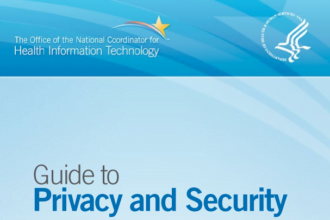Since I gave a keynote at the 2013 Connected Health Symposium called “Making Health Addictive,” I’ve been posting on this topic in order to explain some of the concepts in more detail and to get your feedback. Previous posts include a framing post, and further detail on what I laid out as three strategies to achieve addiction to healthy behaviors: “Since I gave a keynote at the 2013 Connected Health Symposium called “Making Health Addictive,” I’ve been posting on this topic in order to explain some of the concepts in more detail and to get your feedback. Previous posts include a framing post, and further detail on what I laid out as three strategies to achieve addiction to healthy behaviors: “Make it About Life” and “Make it Personal” and “Reinforce Social Connections.”
In early February, I wrote about tactic one, Employ Subliminal Messaging, and last month on tactic two, Use Unpredictable Rewards. This post is on the third of three tactics, Use the Sentinel Effect. I realize there is a lot of required reading if you are just checking in to this series. If you want to absorb the full concept, it is worth reading all of them. If you’d like the Reader’s Digest version, you can get away with the framing post as background.
Making health addictive is really about harnessing the power of our fascination with mobile devices, particularly smartphones. We check these devices up to 150 times per day. What if we put a personalized, relevant, motivational and unobtrusive message in front of you some of those times? Could we induce permanent behavior change? I am searching for examples of these customized mobile, personalized messages and any resulting behavior change, so if you know of any, please let me know.
The Sentinel Effect is the tendency for human performance to improve when participants are aware that their behavior is being evaluated; it stands in contrast to the Hawthorne effect, which refers to behavior change as a result of being observed but not evaluated. Both are useful tools in the context of connected health. I’ve emphasized the sentinel effect because in our experience, patients significantly increase their adherence to a variety of healthy behaviors when they know that their physician (or her agent) is watching.
About seven years ago, we began working on platforms to allow patients to upload biometric data. These data act as both a feedback loop for patients themselves to use as a yardstick for health improvement, and also as a mechanism for patients to give their providers access to a richer tapestry of data on which to base care decisions. This combination of feedback loop plus provider oversight worked well for us. In the case of congestive heart failure monitoring, we saw a 50% drop in readmissions; patients with hypertension achieved a significant drop in both systolic and diastolic pressure; and people with diabetes experienced a meaningful drop in HbA1c.
Because the hardest challenge for us to solve was the round-trip data connectivity — from the sensors in the home to the cloud to the EMR and patient portal — we assumed that this was the magic key to the success of these programs. However, when we asked the patients and the nurses caring for them what made these programs work, we heard a unifying theme from both parties. We learned, what mattered most, is that patients worked hard to improve their health because they knew their nurse was watching and didn’t want to disappoint her. Some patients went so far as to say they’d only participate in uploading their self-monitored data if they knew that their doctor and/or nurse were looking at it.
Here are three video clips that illustrate this:
First from one of our patients, George Ruboy, who talks about his personal experience with Connected Cardiac Care, our heart failure tele-monitoring program:
The mirrored reflections of one of our nurses, Karen Federico, are presented in this video clip:
Lastly, from a pharmacist who has used our Blood Pressure Connect program to manage many patients with hypertension:
This most basic of human psychologies is related to strategy number three, Reinforce Social Interactions. Some social interactions are motivating because we want to brag to our friends, because we want our friends to be a support group or because individuals in our social network are holding us accountable.
The Sentinel Effect is a really powerful tool, but is based on a fairly primitive psychology. Essentially, we don’t want our parents to catch us falling off the wagon.
It’s great that we learned about the synergistic relationship between objective, patient-generated data and the Sentinel Effect. If the same programs were based on self-reported data from patients keeping a written diary, for example, we’d have much weaker outcomes. Patients would report those data that make them look healthy and ignore those that do not.
Now, we’re contemplating whether we actually need a nurse or doctor as the sentinel. For these algorithmic conditions, like uncontemplated hypertension, could we employ software to do the monitoring, rather than having a doctor or nurse monitor the patient data. But would patients be as responsive and diligent managing their own health? Early results suggest this is possible. It is the next generation of connected health solutions.
Let me know your thoughts.








